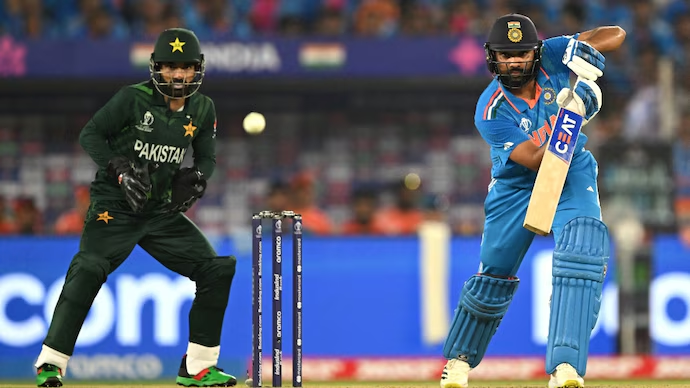
(AFP Photo)
Former captain Nasser Hussain has highlighted England’s need to address their challenges in adapting to slower pitches following their defeat to South Africa by seven runs in the ICC Men’s T20 World Cup 2024’s second Super Eight stage match.
The match at the Daren Sammy National Cricket Stadium saw England perform well in restricting South Africa to 163/6. However, during their chase, England faced difficulties coping with South Africa’s slower deliveries, finding themselves struggling at 61/4.
Harry Brook played a composed innings of 53 runs and partnered effectively with Liam Livingstone, who scored a quickfire 33 off 17 balls, as they capitalized on South Africa’s pace-off deliveries.
With England needing 25 runs from 18 balls for victory, South Africa tightened their bowling and conceded only 17 runs in the final three overs, securing a thrilling win and moving to the top of Group 2.
No batter likes it when the ball stops in the pitch a bit, but my one concern about England is that their players really like facing balls with pace on as we saw against West Indies earlier in the week.”
“This was not a minefield, just a slower pitch and if you look at where England have played their best cricket in this tournament, it has been Antigua when there was pace and bounce and here in St Lucia when there was pace and bounce against the West Indies.”
“If Jos Buttler’s team defeats the United States on Sunday to get into the semifinals, they could end up facing India in Guyana, for example, and they will need to address how to play on the kind of surface they were dealt here.”
“Harry Brook and Liam Livingstone showed they can cope with coming in during the middle overs and put the foot down straightaway, but despite England playing good cricket, they failed to get over the line,” wrote Hussain in his column for Daily Mail.
Hussain also praised Quinton de Kock, South Africa’s wicketkeeper-opener, for his explosive innings of 49 runs off 20 balls during the power-play. De Kock’s aggressive batting included hitting boundaries consistently off Moeen Ali, Jofra Archer, and Sam Curran. His onslaught ensured that South Africa scored 63/0 in the power-play, surpassing England’s 41/2.
“It was a case of de Kock winning the matchups at the start of the game. It was no surprise that England started with the off-spin of Moeen Ali, a bowler who has dismissed him six times in T20s. But the other match-up was in de Kock’s favour because he loves batting against Jofra Archer.”
“It’s the natural line and length of Archer that the South African left-hander enjoys facing so much — delivering from close to the stumps and hitting the back of a length. We have seen it in South Africa previously that de Kock just loves picking him off on the leg-side and that over that cost 21 runs was decisive.”
South Africa have had some close games and keep managing to, which is actually the opposite of what they normally do in World Cups. They tend to blast people away in tournament cricket at the start, then get some close games in a knockout situation and come unstuck. It could be a good sign for them,” he concluded.




